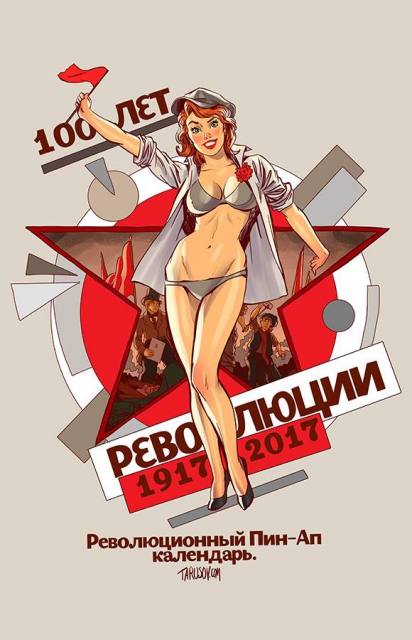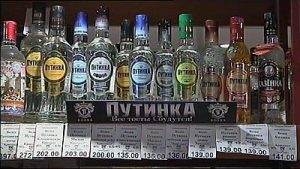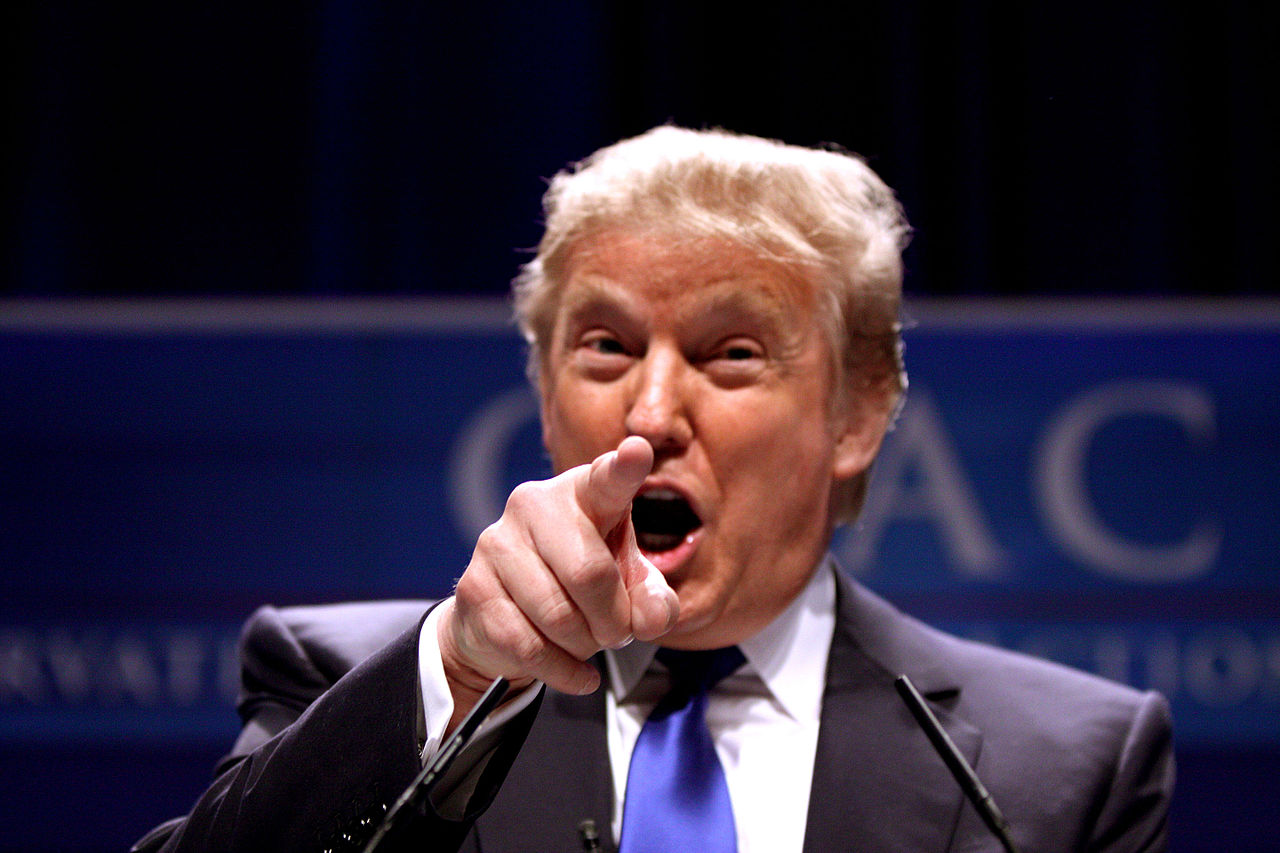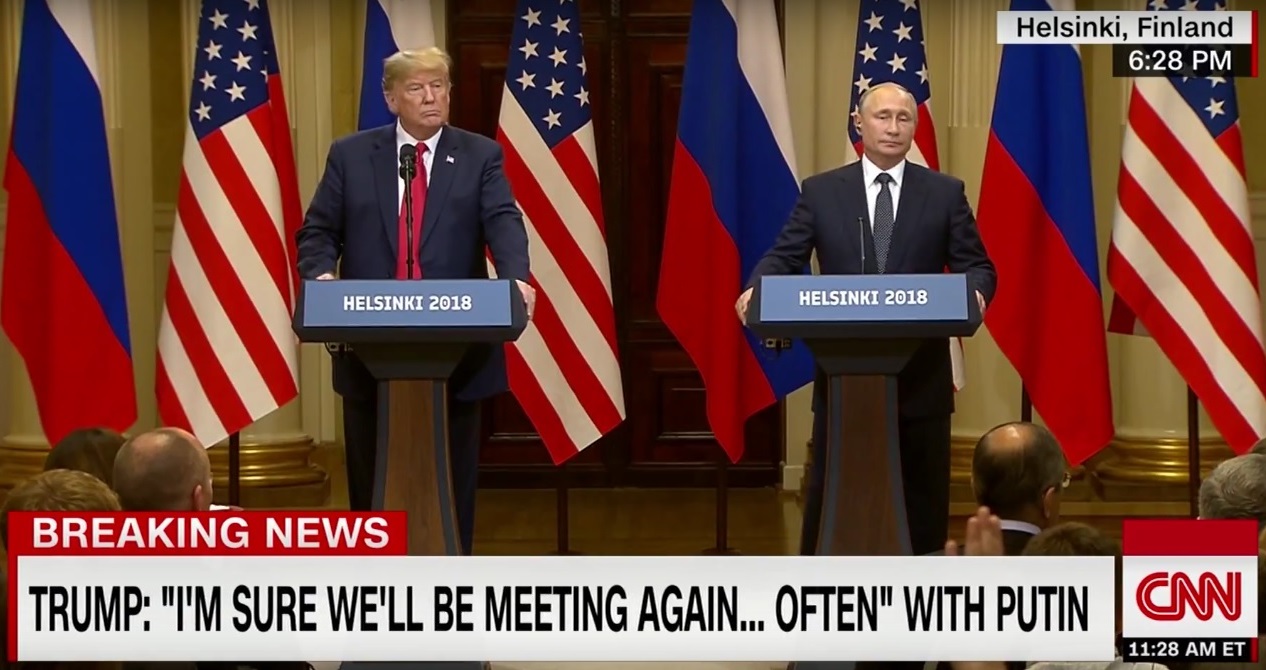The flood of news stories from a country as large, diverse and strange as the Russian Federation often appears to be is far too large for anyone to keep up with. But there needs to be a way to mark those which can’t be discussed in detail but which are too indicative of broader developments to ignore.
Consequently, Windows on Eurasia presents a selection of 13 of these other and typically neglected stories at the end of each week. This is the 65th such compilation. It is only suggestive and far from complete – indeed, once again, one could have put out such a listing every day — but perhaps one or more of these stories will prove of broader interest.
1. For Russians, Putin Fills the Role of Trump and Brexit Taken Together, Lukyanov Says
Fyodor Lukyanov, a leading Russian foreign policy specialist, says the anti-government populist wave sweeping the West would come to Russia as well were it not for the fact that Vladimir Putin fills the role of “Trump and Brexit combined.” Thus, Russians support him even though they distrust or even hate their government in general.
But Putin did not get all good news this week. Some commentators criticized him for his selective approach to sending New Year’s greetings to foreign leaders, and many said they were disappointed in his message to the Russian people in advance of the holiday.
Other writers suggested that under Putin, Russia had become a zero sum game, one in which what’s good for Putin is bad for Russia because of all the harm he has done to the economy and to Russia’s standing with decent people around the world. And the Kremlin leader may have been unhappy with two other reports this week: one showing that paranoid projection is the proper basis for understanding Putin and Putinism and a second finding that when Russians turn to Yandex and search under the letter “p” they are not prompted to look at materials about Putin.
2. Like Crimea, ‘Trump is Ours,’ Russian Products Proclaim
At a time when Russian officials are being anything but graceful about the retirement of President Barack Obama and are openly celebrating the coming to power of Donald Trump, ordinary Russians are being encouraged to think positively about Trump with Russian manufacturers labeling some of their products “Trump is Ours,” an analogy to the “Crimea is Ours” meme of the past several years.
That Trump may really be Russia’s is suggested by a former Soviet intelligence officer who says that Moscow has been cultivating the New York developer since his fist visit to the USSR in 1987.
3. Tidal Wave of Bad Russian Laws Keeps On Coming
The Duma has been issuing ever more laws, almost all of which are intended to tighten the screws on the Russian people and which have been made worse by the tendency of Russian officials to ignore restrictions on their actions and view the letter of the law only as the basis for yet more repressive actions on their own. The next few months promises to bring still more such laws.
The Moscow Patriarchate wants the Duma to impose fines for cursing in public, and the Communist Party of the Russian Federation (KPRF) wants prison terms imposed on anyone who compares the Soviet system to the Nazis. Regional legislators are following suit. In Chechnya, they want to make it a crime for anyone who ignores civic new year’s celebrations, something many devout Muslims think they should do.
Officials are using these new laws to limit the rights of Russians even further than the State Duma at least ostensibly has yet been prepared to go. A court in Karelia has confirmed the dismissal of a local editor for news reports officials didn’t like, saying that doing so was not in her job description; and a yoga enthusiast has reported that, in Putin’s Russia, engaging in that exercise program can land one in prison.
4. Communists Issue a Pin-Up Style Calendar about 1917

The war about the past in Russia heated up over the holidays with the Communist Party of the Russian Federation (KPRF) putting out a calendar in pin-up style about the 1917 Revolution, part of the communist effort to attract more young people to their cause.
Meanwhile, Moscow’s focus on the past created some problems for Russia’s current rulers: Some Russian recalled the democratic traditions of Novgorod which Muscovy destroyed, others took up the cudgels over just what the country’s coat of arms should look like, and activists in Volgograd (formerly Stalingrad) called for the opening of a Stalin Center there to balance or ultimately overwhelm and put out of business the Yeltsin Center in Yekatrinburg, and Chechens remembered a man who fought the Russian advance into the Caucasus in the 19th century.
Perhaps the best summation of what is going on in this and other sectors of Russian life came from Igor Yakovenko who pointed out that 2016 was the year that “the true and the good” disappeared from Russian media and Russian public life.
5. Russians Forced to Eat and Dream Less in 2017
The continuing problems of the Russian economy mean, commentators say, that Russians will have to eat, drink and dream less in the year ahead. Others say that Russians have already adapted themselves to this new if unfortunate reality, at least in part because they’ve had so much practice:
- According to one study, the Russian state has been robbing the Russian people for 350 years and there is no reason to expect any change soon. Mikhail Delyagin points out that in Russia today, the rich continue to get richer and the poor poorer, a trend highlighted in these days by the opening of a casino in Sochi, the site of Putin’s much-ballyhooed all-Russian Olympic project, that only the rich can afford to go to.
- Meanwhile, the Russian state budget shows that the government is spending far more on paying its bureaucrats than for health care and education for the population, and Moscow’s cutbacks in transfer payments to regions and localities mean that the center has “legalized” poverty at the local level.
- Suggestions that NGOs should be recruited to help fill the gap left by the exit of the state from social services have been denounced as “a form of capitulation” by the state and are receiving support, although some NGOs are trying to help fill the gap. Social problems are multiplying at least in part because of economic problems.
- In Belgorod, one of the most ethnic Russian regions of the country, two out of every three marriages now ends in divorce and birthrates are plummeting, and despite the fact that Vladimir Putin has proclaimed 2017 the year of the environment, Muscovites are suffering from the release of a poisonous gas during the holidays.
6. Stalinist Institutions Making a Comeback
While a debate rages on whether Russia is a dictatorship, some of the most notorious Stalinist institutions are making a comeback: forced labor centers opened in four regions of Russia at the end of the year, a bill has been introduced in the Duma to restore collective farms, regional governments are moving to control the print media by centralizing control over printing, and, the most disturbing step of all, officials in Daghestan are setting up special children’s homes for the offspring of militants, thus restoring the so-called “detdomy” of Soviet times which produced Mankurt-like officials prepared to suppress their own peoples.
Two other reports may signal that the future is only going to get worse in this regard:
- A communist commentator said that Putin’s formation of his personal “national guard” is the most important event of the last year because it will allow him to attack those who should be attacked.
- Sergey Markov, someone close to the powers that be who has ties to many in the West as well, declared that “it is sometimes necessary to punish the innocent” supposedly in the name of some higher purpose.
7. Vodka – Foundation of Russian Statehood

The Russian state, a Kyiv newspaper says, rests on vodka and the propensity of the Russian population to consume enormous amounts of vodka. On the one hand, excise taxes on vodka provide the government with enormous sums of money for the state budget. On the other, over-consumption of alcohol keeps the Russians from challenging the regime and makes them easier to rule.
8. Moscow Patriarchate Takes Lead in Compiling Enemies Lists
The Moscow Patriarchate has taken the lead in compiling and distributing lists of Russophobes via its media outlets, according to Russian journalists, a pattern that is sparking complaints about this kind of obscurantism and the way it can lead to heightened social tensions and more repression. Unfortunately, such “enemies lists” are encouraging some of the worst elements in the church, including calls for canonizing Rasputin and, from one priest, calls to take revenge against the Jews for all of Russia’s problems.
9. 109 Bodies from First Post-Soviet Chechen War Returned Home
Twenty years after the end of the first post-Soviet Chechen war, Russian officials have finally returned 109 Chechens who were abducted and killed in that conflict. Unfortunately, the condition of the bodies is such that only two have been identified and returned to their families; the rest will go in mass graves.
10. Kazan-Moscow Power-Sharing Treaty Should Be Extended and Copied by All Other Federal Subjects, Shevchenko Says
This year, the power-sharing agreement between Tatarstan and the Russian Federation is up for renewal. Tatarstan is the only republic to still have such an arrangement with Moscow. Russian commentator Maksim Shevchenko says that it should not only be extended but should become the model of similar accords between Moscow and each of the other federal subjects as well.
11. Tortures and Deaths Continue Unabated in Russian Prisons
Stalin’s dictum that one person’s death is a tragedy but a million deaths is a statistic continues to apply in Russia. Numerous commentators this week focused on the issue of where a single prisoner, Ildar Dadin, was being kept. They devoted much less attention to the reality that in the last year, at least 99 prisoners died while in Russian penal institutions and to the even sadder one that tortures continue and may even be increasing in prisons holding Muslims from the North Caucasus.
12. Russia has Lower Share of World’s GDP Now than It Did in 1922
All of Soviet and post-Soviet efforts to expand the economy there have been in vain: the Russian economy today is smaller as a percentage of the world’s GDP than it was at the end of the Russian Civil War of 1917-1922, a reality that calls into question all the sacrifices the peoples of that country have been forced to undergo.
Meanwhile, Aleksey Shiropayev, a Russian commentator, has pointed out something even more disturbing. He writes this week that the country has not managed to resolve any of the tasks that the Russian Provisional Government set in February 1917 and does not appear on course to do so anytime soon.
13. ‘Bio-Trash’ Among New Terms that Define Russia Today
Whatever the guardians of culture think, language is a living thing, which both reflects and informs how people respond to the world around them. This past year, Russians have begun using many new terms, like “Brexit” and “Trumpampam” but perhaps the most unfortunate is one that appears likely to survive long after those disappear is “bio-trash,” a term many Russians are now using to describe those young people who are driven to suicide.
And six more from countries near Russia:
14. Nero had Nothing on Turkmenistan’s President
Roman emperor Nero famously sang while Rome burned. Now, Turkmenistan President Gurbanguly Berdimuhamedow, who many see as having failed to develop his country even as he promotes an ever more elaborate personality cult, has composed songs and sung them to his nation.
15. Armenian and Azerbaijani Losses Mounted in 2016
The Karabakh conflict may be a “frozen” one for international observers, but it is still costing the lives of people on both sides of the fragile ceasefire line. During 2016, Armenian forces suffered 165 deaths, while Azerbaijani ones lost 147. Over the last 14 years, Caspian Defense reports, Azerbaijan has had more than 1000 combat deaths.
16. Belarus Now has Its Own Oil Field
Belarusian officials announced that they have discovered oil, but international experts say the field is quite small and is unlikely to affect Minsk’s dependence on oil from Russia.
17. Ukraine Making Enormous Progress in De-Sovietization Effort
Over the last 12 months, the Ukrainian authorities pulled down 2389 Soviet monuments, including 1320 devoted to Lenin alone, renamed 987 cities and towns and more than 50,000 streets. Vinnytsia, Kharkiv and Kyiv oblasts were the leaders in this process. Even more significantly, Ukraine made progress in reorienting its trade away from Russia and CIS states toward Europe and the West.
18. Minsk Process Dead, Moscow Analyst Says
The Minsk process in which so many in the West have placed so much confidence is dead and will not lead to the resolution of the conflict in Ukraine, according to a Moscow analyst writing in Vzglyad. Two other reports this week suggest just how far the Russian invaders are from wanting or being able to make peace: According to the first, Russian commanders have had to keep their subordinates confined to base in the Donbas lest they be attacked by the population if they go outside. And according to the second, one of the Russian force commanders said that he had used an order Stalin issued in 1941 as the basis for his killing Ukrainians over the last three years.
19. Choosing When to Mark New Years and Christmas Dangerous in Russian-Occupied Portions of Ukraine
People living in the Russian-occupied portions of Ukraine must celebrate the winter holidays according to the Russian Orthodox calendar which is two weeks behind the Western one or face problems with their current rulers.








